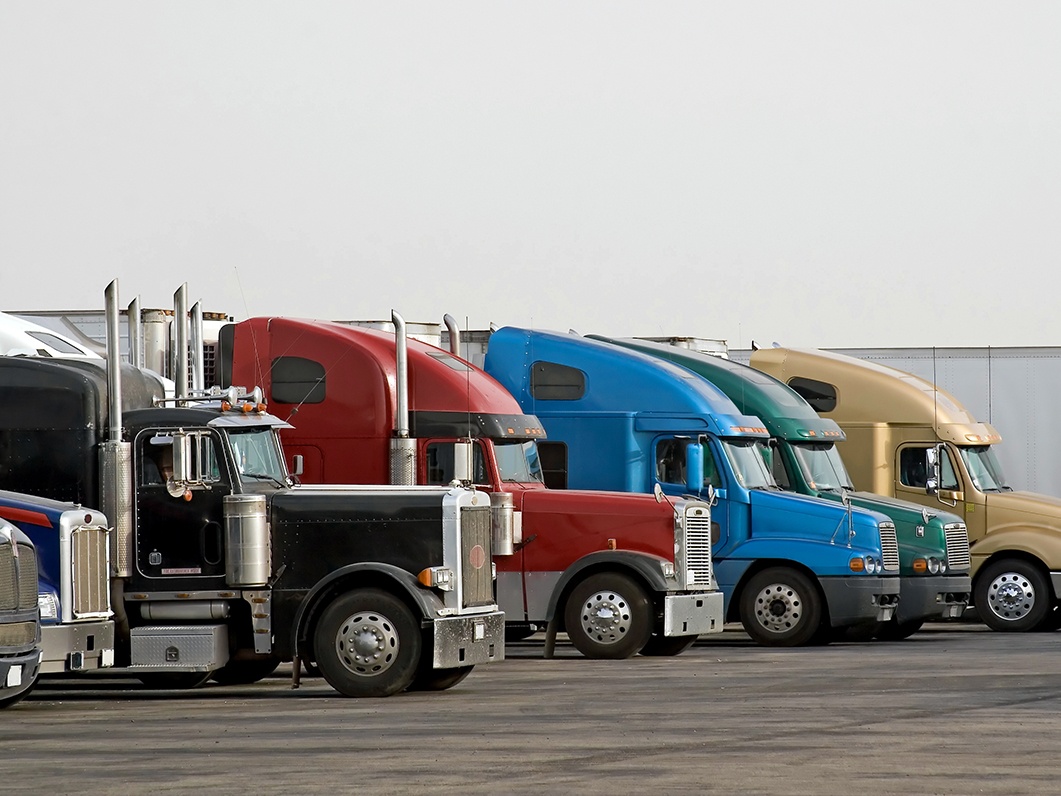By Cain Adams
Trinity Logistics/Longboard Logistics
Meridian, ID
Not to be a wet blanket, a solemn killjoy person, but we think the large will get larger. Large carriers will keep recruiting and take on more contract loads.
This is not a bad thing but it still is a thing. The smaller guys will be reduced as less and less spot market freight is available. What is crazy is contract loads were looked at as death during the pandemic. No one wanted to take on contracts. Why? Because the spot market would outperform the contract loads, and carriers would leave those loads on the docks and take spot market loads. This then put pressure on those loads and pushed up the rates just so they would get picked up. Inflation overnight, right?
So when we see people dolled up to go out to dinner or visit a local grocery store and notice the prices are much higher than last year, we may be paying for it due to contracts being negotiated last winter!
Freight is not sexy, yet it is a necessity with a lot of moving parts. And those parts keep getting more costly until something breaks. That break may be coming soon to a theater near you.
Until fuel comes down, we think contract pricing will continue to be bid high and put pressure on every pocketbook. Our hope to reduce prices may be balancing out the spot market and contract loads soon so we have strength in both.
The docks are full, the port unions on the West Coast do not have a contract in place and railroad unions labor agreements are stressed and in need of reform. The service level in both areas is less than desirable. We do see some rail improvements coming, but it may take a few years.
For now, the lack of stability in both areas keeps shippers up at night. Will receivers get their merchandise on time? Will it be more expensive and will their customers pay for those items or hold off on purchasing? I feel like we are going back in time.
The 1920s were a time to party. “Flappers,” young women known for embracing a party lifestyle, and “Big Six,” a strong man from auto advertising for the new six-cylinder engines, ruled large towns at night and made their dime by day. Through the 1920s the U.S. economy expanded, doubling the wealth between 1920 and 1929. Everyone was pouring their money into the stock market. The stock market peaked in August 1929. Does this sound familiar?
In October 1929 a crash happened because inventories started to pile up at factories after demand for goods and services dropped. By 1933 over 15 million workers were laid off and nearly half the nation’s banks failed. In 1930 a severe drought took shape in the Southern Plains, reducing livestock and crops.
But there came hope from a leader named Franklin D. Roosevelt. He stabilized the industrial and agriculture industries, created jobs and stimulated the recovery.
The last time we had a downturn was December 2007–June 2009. The “Great Recession” was 13 years ago. It took 18 months to recover. They were long months for many.
Today we are being forced into a recession because too much cash was added to the economy, and our economy became too stimulated in turn, creating inflation we have not seen for 40 years. We have this “cat’s meow” – something splendid or stylish feeling – mindset right now with money still flowing and goods and services still rolling. The calm before the storm is a phrase we all use in this industry, and the calm is now.
Last week a carrier walked in my door and said he hung it up for good.
“Cain, I just can’t do it anymore. My truck payment is $3,600, the reefer is $1700, insurance is $1800. I use $7,000-$9,000 in fuel each month and pay $150 every time I go through Oregon. Tolls are high, and I still need to pay the rent back home. Everything is just too much.”
This week Lone Star, a dedicated carrier, closed its doors. Ninety drivers walked. I did a Google search and started seeing articles showing 3,000 companies closing their doors in 2022. They are naming it the “Great Purge,”
We think there may be a purge, but it won’t be the really large carriers who have contract freight in place. Those contracts have fuel surcharges or have negotiated higher rates on the contracts they took. The large companies tell the customer rates will be much higher than pre-pandemic.
We see trouble for the smaller companies. The one truck companies are now scrambling because they bought the $200,000 truck and trailer and have overhead surpassing the per-mile rates in the current spot market. They are a great resource in the onion and potato world. We rely on many owner-operators because of the seasonal movement of produce. If this war can stop before December, and if diesel fuel can come down around the same time, we think it will benefit the economy in an enormous fashion. If fuel stays high, then the large contracts will get priced high again next year and no relief may happen.
Either way, Americans seem to figure it out. It’s what we are good at. We pivot, dust ourselves off and carry on to the next Flapper party in our best attire looking for a turn on the dance floor. Our country may be at odds at times, but together we are better, and I am so proud of it for that reason.



